1. Endless Screen Time

The average American spends over 7 hours a day staring at screens, and much of that is on smartphones. A 2001 flip phone doesn’t have social media apps, games, or video streaming, so you won’t get sucked into the endless scroll. You’ll only use it for calls and texts, cutting down your screen time dramatically. That means less eye strain, better sleep, and more time to focus on real-world stuff.
Without notifications pinging constantly, your brain gets a break from information overload. This can reduce anxiety and improve attention span. Plus, no social media means fewer chances to compare yourself to unrealistic online lives. It’s like a mini digital detox every day.
2. Privacy Nightmares

Smartphones today track your location, browsing habits, and even your fitness data, often without you fully realizing it. Flip phones from 2001 don’t have GPS, apps, or constant internet connections, so they don’t collect or share your personal data. That means no creepy ad targeting or accidental data leaks. You stay more in control of what you share, even if it’s just by default.
If privacy is a big concern, a flip phone keeps things simple and offline. You won’t have apps listening to your conversations or syncing your data to the cloud. Losing your phone won’t mean exposing your entire digital life. It’s a low-tech way to protect your privacy in a hyper-connected world.
3. Battery Anxiety
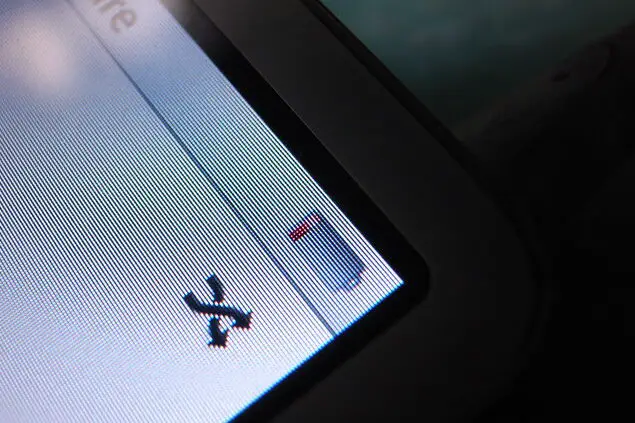
Modern smartphones can barely last a full day on a single charge, especially with heavy use of apps and video calls. A flip phone from 2001 easily lasts several days on one charge because it uses far less power. You can actually trust it to work when you need it most, without hunting for a charger every few hours. That’s a relief if you’re constantly running between meetings or on the go.
No power-hungry apps or bright screens mean your battery just won’t die on you unexpectedly. It also means fewer chances of being stranded without a way to call for help. For people who hate being tied down by chargers and cables, this is a huge win. Simplicity here equals reliability.
4. Overwhelming Notifications
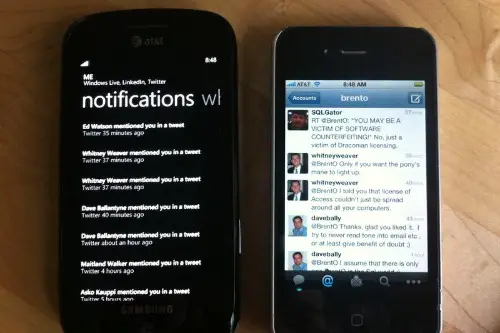
Smartphones bombard users with endless notifications—from social media likes to news alerts and app updates. A 2001 flip phone only notifies you when someone calls or texts, no ads, no reminders. This means fewer distractions and less stress from constant interruptions. You get to decide when to check your phone, not the other way around.
Reducing notifications can help improve focus and lower anxiety. It’s easier to be present in meetings or conversations without your phone constantly buzzing. People who struggle with distraction often find this kind of digital quiet refreshing. Flip phones deliver peace of mind by cutting out noise.
5. Social Media Addiction

Social media is designed to keep you hooked, often leading to hours lost each day. A flip phone doesn’t support Instagram, TikTok, Facebook, or Snapchat, so there’s no endless feed to scroll through. You avoid the dopamine trap of likes, shares, and comments. This can free up your time for hobbies, friends, or just relaxing without guilt.
Without social media, you’re less exposed to toxic comparisons or online drama. It encourages face-to-face communication instead of digital chatter. This can improve real-world relationships and self-esteem. It’s an easy way to disconnect from the virtual pressure cooker.
6. Distracted Driving
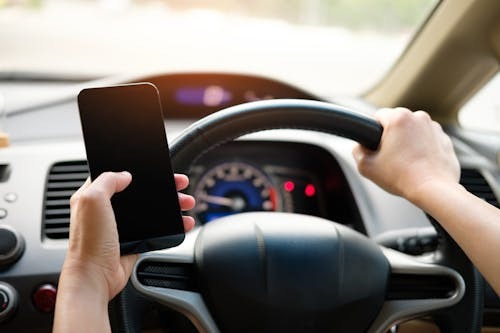
Smartphones are a leading cause of distracted driving accidents due to texting and app use while behind the wheel. A flip phone only supports basic calls and texts with no tempting apps or GPS distractions. You can keep your eyes on the road instead of a glowing screen. This reduces accident risk and helps save lives.
Many states have banned texting while driving, but the temptation remains strong. Using a flip phone removes that temptation entirely because it simply isn’t designed for multitasking apps. It encourages safer driving habits by design. Sometimes less tech means more safety.
7. Information Overload

Modern smartphones deliver a nonstop stream of news, updates, and notifications, which can feel overwhelming. A 2001 flip phone keeps communication simple, so you’re not constantly bombarded with information. This helps your brain process what matters without overload or stress. You can focus on tasks or relaxation without distraction.
Overconsumption of news and social media has been linked to anxiety and burnout. A flip phone’s simplicity acts as a filter by default, helping you stay mentally healthier. It’s like a built-in information diet. Less noise, more peace.
8. Data Plan Costs
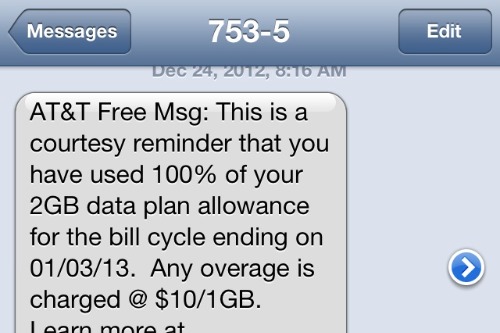
Smartphone data plans can get expensive, especially with video streaming and app use draining data quickly. Flip phones mostly use SMS and voice, which are cheaper or sometimes included in basic plans. You avoid costly overages or paying for large data bundles you rarely use. This can save a surprising amount of money monthly.
For people trying to cut expenses, a flip phone paired with a basic plan is budget-friendly. You only pay for essential communication without extras. This is especially helpful for kids, seniors, or anyone who wants to keep phone costs low. It’s a no-frills approach to staying connected affordably.
9. Digital Burnout

Being constantly connected with smartphones can lead to digital burnout, causing fatigue and irritability. A 2001 flip phone limits you to calls and texts, reducing digital noise and screen exhaustion. You get time to recharge mentally and emotionally without feeling guilty about unplugging. This can improve overall well-being and mood.
Digital burnout often comes from feeling like you must respond instantly to messages or social media. Flip phones slow the pace by removing those instant-response pressures. You’re not chained to your device 24/7. It’s a simple way to reclaim balance.
10. Security Vulnerabilities

Modern smartphones face constant hacking attempts, phishing scams, and malware risks due to their internet connectivity. Flip phones, with no internet browser or app downloads, are far less vulnerable to cyberattacks. There’s no risk of accidentally clicking on a malicious link or downloading spyware. Your data stays safer in a low-tech bubble.
This is especially useful for people who aren’t tech-savvy or want to minimize risks. Even if you lose your phone, it’s unlikely anyone can access sensitive information. That’s peace of mind in an age of data breaches. Sometimes less connected means more secure.
11. Multitasking Madness

Smartphones encourage juggling dozens of apps, messages, and calls all at once, which can reduce productivity. Flip phones force you to focus on one thing at a time—usually just a call or a text—without pop-ups or multitasking distractions. This helps you stay more present and get tasks done faster. It’s like a productivity hack built into your phone.
When you’re not splitting attention between apps, your brain works better on single tasks. This can improve work quality and reduce stress. Flip phones help you cut through the digital chaos by design. It’s an old-school way to get more done.
12. Overcomplicated Interfaces

Modern smartphones pack a ton of features and menus, which can confuse some users, especially older adults or kids. Flip phones have simple, intuitive interfaces with physical buttons and minimal options. This makes them easy to learn and use without frustration. They’re perfect for anyone overwhelmed by today’s tech.
If you’ve ever watched a grandparent struggle with touchscreen keyboards or app stores, you know the appeal. Flip phones provide a familiar feel and straightforward function. They lower the barrier to staying connected. Sometimes simplicity is the best user experience.
13. Constant FOMO (Fear of Missing Out)

Social media and instant messaging create pressure to always be “in the know” or respond immediately. Flip phones don’t support apps or push notifications, so you’re not glued to updates or group chats. This can help you let go of FOMO and enjoy the moment without stress. You get to decide when to catch up on news or messages.
By reducing this pressure, flip phones encourage healthier boundaries with technology. You feel less overwhelmed by the need to always be “online.” It’s a mental health boost disguised as a phone. Less FOMO, more freedom.
14. Overdependence on GPS
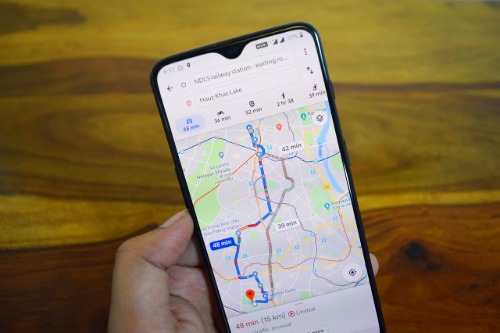
Smartphones make us heavily reliant on GPS and navigation apps, which can cause anxiety if signal is lost or battery dies. A 2001 flip phone doesn’t have GPS, so users are more likely to plan routes ahead or use paper maps. This can reduce overdependence and improve basic navigation skills. It also means less worry about dead batteries leaving you stranded.
Relying less on GPS encourages mindfulness about your surroundings. It can boost confidence in traveling and exploring. Plus, you avoid the distraction of constantly staring at your phone while walking or driving. Sometimes old-school navigation is safer and more empowering.
This post 14 Modern American Problems You Could Solve With a 2001 Flip Phone was first published on American Charm.


